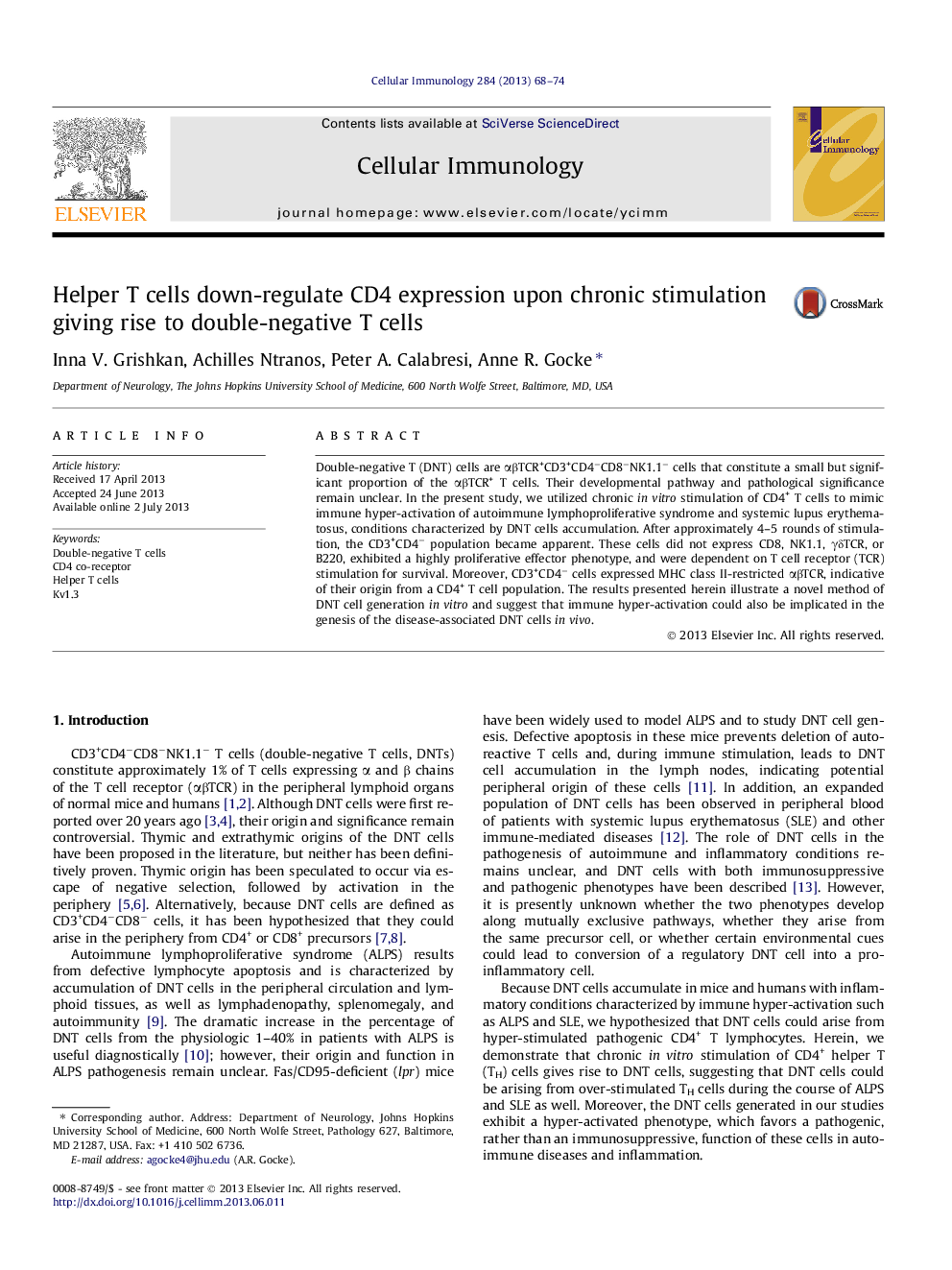| Article ID | Journal | Published Year | Pages | File Type |
|---|---|---|---|---|
| 8463913 | Cellular Immunology | 2013 | 7 Pages |
Abstract
Double-negative T (DNT) cells are αβTCR+CD3+CD4âCD8âNK1.1â cells that constitute a small but significant proportion of the αβTCR+ T cells. Their developmental pathway and pathological significance remain unclear. In the present study, we utilized chronic in vitro stimulation of CD4+ T cells to mimic immune hyper-activation of autoimmune lymphoproliferative syndrome and systemic lupus erythematosus, conditions characterized by DNT cells accumulation. After approximately 4-5 rounds of stimulation, the CD3+CD4â population became apparent. These cells did not express CD8, NK1.1, γδTCR, or B220, exhibited a highly proliferative effector phenotype, and were dependent on T cell receptor (TCR) stimulation for survival. Moreover, CD3+CD4â cells expressed MHC class II-restricted αβTCR, indicative of their origin from a CD4+ T cell population. The results presented herein illustrate a novel method of DNT cell generation in vitro and suggest that immune hyper-activation could also be implicated in the genesis of the disease-associated DNT cells in vivo.
Related Topics
Life Sciences
Biochemistry, Genetics and Molecular Biology
Cell Biology
Authors
Inna V. Grishkan, Achilles Ntranos, Peter A. Calabresi, Anne R. Gocke,
